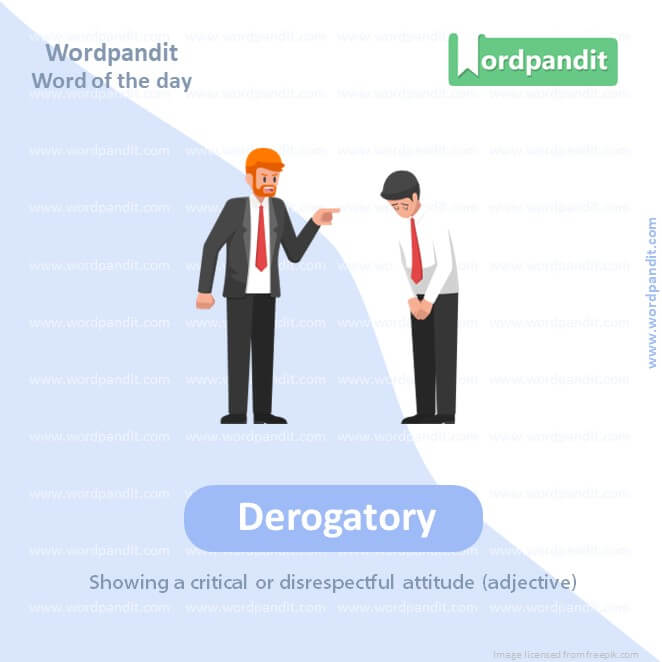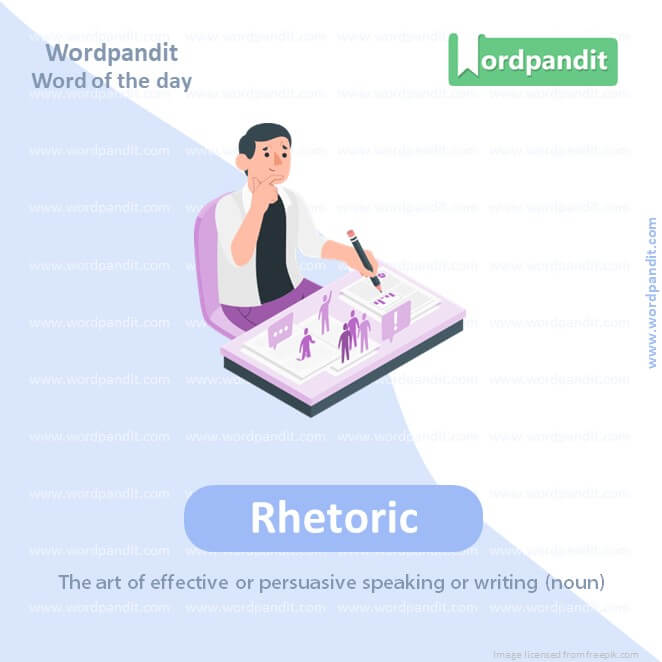Daily Vocabulary Words: List of Daily Used Words in Leading Indian Newspapers
Hi there. Welcome to this special section @ Wordpandit. Our endeavour here is straightforward: highlighting daily vocabulary words that you would come across in leading newspapers in the country. We have included the following newspapers in our selection:
• The Times of India
• The Economic Times
• Hindustan Times
• Mint
• Indian Express
We are putting in extensive work to develop your vocabulary. All you have to do is be regular with this section and check out this post daily. This is your repository of commonly used words; essentially, we are posting a list of daily used words. Hence, this has significant practical application as it teaches you words that are commonly used in leading publications mentioned above.
Visit the website daily to learn words from leading Indian newspapers.
WORD-1: Interim
CONTEXT: On Tuesday, the Supreme Court told Arvind Kejriwal’s lawyer that if it were to give interim bail to allow him to campaign for the Lok Sabha elections, he would not be allowed to work as the chief minister of Delhi.
SOURCE: Hindustan Times
EXPLANATORY PARAGRAPH: Imagine you’re playing a game and your friend has to go inside for a few minutes, so you wait and keep playing by yourself until they come back. That short time while you’re waiting is called “interim.” It’s a break or pause before something else happens.
MEANING: A temporary or short-term period between events (noun). In the meantime or temporary (adjective).
PRONUNCIATION: IN-tuh-rim
SYNONYMS: temporary, provisional, short-term, stopgap, makeshift
USAGE EXAMPLES:
1. The school hired an interim principal until they found someone permanent.
2. The company has put an interim solution in place while a permanent one is developed.
3. In the interim between games, the team practiced new strategies.
4. An interim report will be issued before the final report is published.

WORD-2: Strained
CONTEXT: This comes as the two nations held diplomatic talks in an effort to mend strained ties.
SOURCE: Hindustan Times
EXPLANATORY PARAGRAPH: If you try to lift something that’s too heavy and your muscles start to hurt, that’s called “strained.” It means you’re pushing too hard and it’s not comfortable. It can also mean when something is tense, like when friends are not getting along very well.
MEANING: Not relaxed, uncomfortable, or showing signs of tension (adjective). Exerted too much physical effort, leading to injury or discomfort (adjective).
PRONUNCIATION: STRAYND
SYNONYMS: tense, stressed, tight, uncomfortable, uneasy
USAGE EXAMPLES:
1. The conversation became strained after they brought up their disagreement.
2. After the long journey, she felt strained and exhausted.
3. He strained his back trying to lift the heavy box.
4. Their strained relationship made working together difficult.

WORD-3: Derogatory
CONTEXT: On derogatory remarks against Prime Minister Narendra Modi, the minister said the government was making sure such incidents were not repeated.
SOURCE: Hindustan Times
EXPLANATORY PARAGRAPH: Imagine someone calling you a name that makes you feel bad. That’s “derogatory.” It’s when people say mean or hurtful things about others.
MEANING: Showing a critical or disrespectful attitude (adjective).
PRONUNCIATION: duh-ROG-uh-tor-ee
SYNONYMS: insulting, offensive, disrespectful, belittling, demeaning, disparaging
USAGE EXAMPLES:
1. The teacher warned students against using derogatory language.
2. His derogatory comments hurt her feelings deeply.
3. The article contained derogatory statements about the actor’s personal life.
4. He faced backlash for his derogatory remarks during the interview.
WORD-4: Sought
CONTEXT: Multiple media reports also said that the woman has also sought protection for her family and complained that she has been receiving threats from multiple phone numbers.
SOURCE: Hindustan Times
EXPLANATORY PARAGRAPH: When you lose your favorite toy and you look everywhere to find it, that’s “sought.” It means trying really hard to find or get something.
MEANING: Looked for or tried to obtain (past tense of seek) (verb).
PRONUNCIATION: sawt
SYNONYMS: searched for, pursued, hunted, looked for, aimed for, strived for
USAGE EXAMPLES:
1. The treasure hunters sought clues to find the buried gold.
2. She sought advice from her teacher about the project.
3. The artist sought inspiration in nature for her new painting.
4. He sought help from friends when he moved to the new city.

WORD-5: Accuser
CONTEXT: Zakharova told reporters in Moscow, “Regular unfounded accusations by the United States against New Delhi… we see that they groundlessly accuse not only India but also many other states…of violating religious freedoms are a reflection of the United States’ misunderstanding of the national mentality, the historical context of the development of the Indian state and disrespect for India as a state.”
SOURCE: Hindustan Times
EXPLANATORY PARAGRAPH: Imagine someone ate all the cookies and you think your sibling did it, so you say, “You ate them!” That’s “accuse.” It’s when you say someone did something wrong.
MEANING: A person who claims that someone has done something wrong or illegal (noun).
PRONUNCIATION: uh-KYOOZ
SYNONYMS: blame, charge, allege, indict, denounce
USAGE EXAMPLES:
1. The teacher didn’t want to accuse anyone without proof.
2. She was quick to accuse her brother of breaking the vase.
3. They accuse the politician of lying about his campaign promises.
4. The police accuse the suspect of stealing valuable jewelry.
WORD-6: Temptation
CONTEXT: Whether the leadership succumbs to the temptation of using authoritarian tricks to push for dominance has been the central question in Indian democracy.
SOURCE: Hindustan Times
EXPLANATORY PARAGRAPH: Imagine you’re not supposed to eat any candy, but there’s a big, colorful bowl of it right in front of you. The strong feeling of wanting to eat it is “temptation.” It’s when something feels very hard to resist.
MEANING: The strong urge or desire to do something, especially something that isn’t good (noun).
PRONUNCIATION: temp-TAY-shuhn
SYNONYMS: urge, impulse, desire, attraction, lure
USAGE EXAMPLES:
1. He felt the temptation to eat another cookie, even though he was full.
2. The temptation to stay in bed was strong on the cold morning.
3. She resisted the temptation to buy another pair of shoes.
4. The kids couldn’t resist the temptation of jumping in the puddles.

WORD-7: Rhetoric
CONTEXT: By now the campaign rhetoric on both sides seems to have crystalised. This edition of the column will talk about the BJP’s campaign.
SOURCE: Hindustan Times
EXPLANATORY PARAGRAPH: If you tell a story and use fancy words to make people listen, that’s “rhetoric.” It’s a way of speaking or writing that sounds impressive and persuasive.
MEANING: The art of effective or persuasive speaking or writing (noun).
PRONUNCIATION: RET-uh-rik
SYNONYMS: eloquence, oratory, discourse, persuasion, speech
USAGE EXAMPLES:
1. The politician’s rhetoric focused on promises of change and prosperity.
2. The professor taught students about the importance of rhetoric in writing.
3. His speech was filled with patriotic rhetoric that moved the audience.
4. Despite his convincing rhetoric, his actions didn’t match his words.
WORD-8: Incumbency
CONTEXT: The 2014 elections were about exploiting anti-incumbency against the Congress-led UPA and the promise of a ‘Gujarat Model’ of development benefitting everybody materially.
SOURCE: Hindustan Times
EXPLANATORY PARAGRAPH: Imagine you’re playing a game, and you’re in charge of making the rules. That’s like “incumbency,” which is when someone is already in a special position or job.
MEANING: The state of holding an official position or office (noun).
PRONUNCIATION: in-KUHM-ben-see
SYNONYMS: tenure, term, office, position, authority
USAGE EXAMPLES:
1. During his incumbency, the mayor improved the city’s parks.
2. The challenger’s campaign focused on ending the incumbent’s long incumbency.
3. The senator’s incumbency provided him with significant influence.
4. She won re-election, extending her incumbency in the state legislature.
WORD-9: Palliatives
CONTEXT: Five years later, the 2019 elections were fought with the tailwinds of fiscal palliatives such as the PM-KISAN transfers; they were deployed after the BJP’s 2018 losses in Madhya Pradesh, Chhattisgarh and Rajasthan, and an aggressive national security pitch after India conducted airstrikes in Pakistan occupied Kashmir to ‘avenge’ the Pulwama terror attack.
SOURCE: Hindustan Times
EXPLANATORY PARAGRAPH: If you fall and scrape your knee, and someone puts a band-aid to make it feel better, that’s like “palliatives.” They help with pain or problems but don’t fix everything.
MEANING: Something that relieves pain or soothes a problem temporarily (noun, plural).
PRONUNCIATION: PAL-ee-uh-tivs
SYNONYMS: painkillers, remedies, alleviators, relievers, soothing agents
USAGE EXAMPLES:
1. The doctor provided palliatives to ease the patient’s discomfort.
2. Palliatives can help manage symptoms while awaiting further treatment.
3. Using palliatives, she was able to attend the event despite her back pain.
4. The government offered economic palliatives to support struggling families.

WORD-10: Nullified
CONTEXT: Not doing this would have made the BJP vulnerable to a near rout because of a very high degree of opposition unity. That threat has been nullified significantly if not completely.
SOURCE: Hindustan Times
EXPLANATORY PARAGRAPH: Imagine you build a tower out of blocks and someone knocks it over so it’s like it never existed. That’s “nullified.” It means making something not count or not matter anymore.
MEANING: Made legally null and void; invalidated (Verb).
PRONUNCIATION: NUHL-ih-fide
SYNONYMS: canceled, voided, invalidated, annulled, abolished
USAGE EXAMPLES:
1. The judge nullified the contract due to its unfair terms.
2. The new law nullified previous regulations that were outdated.
3. His efforts were nullified by unforeseen circumstances.
4. The team’s victory was nullified after the referee discovered a foul.
Vocabulary Words in English
In the kaleidoscopic world of language, the thread of ‘vocabulary words in English’ weaves a rich tapestry. These words, the building blocks of communication, lend themselves to the eloquence and effectiveness of our speech and writing. Despite their significance, mastering ‘vocabulary words in English’ can sometimes be daunting, but with strategic approach, the process can be greatly simplified.
Learning ‘vocabulary words in English’ goes far beyond rote memorization. It requires an integrated approach that encompasses understanding and using the words. Consuming a diverse range of English materials such as novels, news articles, movies, music, and online content can acquaint you with words in actual use, helping you perceive both their meaning and usage in different contexts.
Furthermore, incorporating memory-enhancing techniques can add impactful strides to your journey of mastering ‘vocabulary words in English’. Methods such as the Leitner System or flashcards can bolster the memory retention of these words. Meanwhile, using mnemonic devices, associating words with unique stories or images, can help in retaining the ‘vocabulary words in English’ in long-term memory.
Another key to deciphering ‘vocabulary words in English’ is by practicing them in real-world contexts. Incorporate the new words into your daily conversations, written emails, or social media posts. Not only will this reinforce the meanings and applications, but also boost your confidence in using them.
In essence, understanding ‘vocabulary words in English’ is a continual journey that calls for persistent commitment, diverse learning approach, and ample practice. As you indulge in this exploration, you will find your command over the ‘vocabulary words in English’ becoming stronger, leading to more confident and dynamic communication. Remember – in the world of language, words are your faithful companions, and the more you engage with them, the more they’ll reveal their richness to you.











